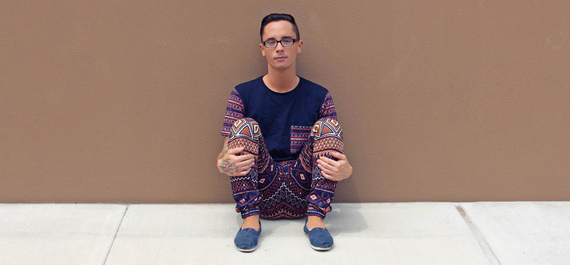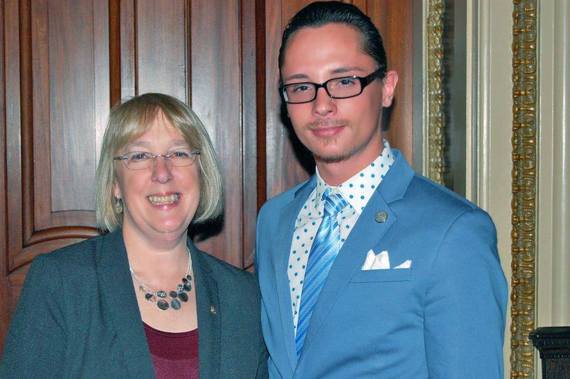Dear Supreme Court Justices: You're On Deck
Dear Supreme Court Justices,
You are on deck, and it’s me again. I’m writing both to thank you for taking up a case that might finally grant security to millions of families like mine and to beg you to think about the chaos you are rendering if you fail to do so. Here you are up to bat again. Please make this one count.
My sweet family is but one example of the ways the current situation is demoralizing and, frankly, bizarrely complicated. I doubt that any of you can even imagine the contortions to which LGBT families are subjected in the current landscape. I keep trying to think of the perfect analogy to offer so that you can understand, but, instead of an analogy, I’m left with the stories of my own small family. You remember us. My partner and I have a seven-year-old son, and I want you to hurry up before I have to explain to him how you have failed to protect his mothers and his future. As I told you before, he is growing quickly, and your time is running out.
But there’s more to it for us than just not wanting our son’s outlook to be compromised. Just last week, we encountered another horrific way in which the inconsistency of state to state laws can harm us. This one is ridiculous — so, ridiculous, in fact, that I wouldn’t even believe it myself if I weren’t living it. A little over a year ago, my partner was a pedestrian hit by a car. We have been struggling with medical bills for major back injury and post-concussive syndrome. But we have supportive employers, and family, and we are well-insured. Or so we thought.
Well, that driver was underinsured, so we looked to our own insurance to see about our underinsured policy. Apparently I made the original call to get both cars insured eight years ago when we moved here. And, although I was explicit that the coverage was for both of us, our insurance now claims that, because it was not legal for us to be married in our state fourteen months ago when the accident happened, the policy really only covers me. Luckily, we have other avenues to pursue, so we will let attorneys fight that one out.
Because we are now legally married and are free to be so both in our state and federally, I wanted to make sure that our current coverage — with a different carrier — fully includes us both, as it would any other married couple. When I explained to our agent exactly why I was so frustrated by this, she actually posed another complicating question. If such an accident happened again, and we are eligible for coverage in our home state and federally, would our insurance still be required to pay if the accident actually occurred in a state that does not allow same-sex marriage? I, of course, could not provide an answer.
Surely you recognize the absurdity of what I am telling you. After a couple of years of having to do our taxes together federally and then redo them separately for our state, I thought the absurdity was coming to an end. Now I’m not quite sure how to be certain my partner and I are fully covered with car insurance unless we take out completely separate policies because, although in our state and federally we are married, we still aren’t married in some states and that could be used against us if an accident happened there.
It’s not enough that the hospital where she was first seen treated me horribly when I arrived at the ER to be with her. It’s not enough that she, who stayed home with our son for the first years of his life, still isn’t quite legally his mother because a judge in our state has put up obstacles solely because he doesn’t believe in two-mother families, despite supportive laws in our state. It’s not enough that we had to pay taxes on the part of her insurance my employer paid because that was treated as taxable income when my straight colleagues received that benefit tax-free. We keep these insults at bay merely by clinging to the love we share and the delight of being family to one another. But, honestly, could any family, including yours, be expected to endure with such chronic insult?
In the end, many of us in LGBT families may need to thank you. The marriages many of us have formed are melded in ways few straight couples can understand simply because we have walked through fire together. But enough is enough. We have gone the extra mile. But we are tired of doing so. We are tired of the sometimes small but all too often enormous barriers to our pursuit of happiness that you have allowed.
So when you hear this case, and when you debate it, trying to decide if you should just leave it to states to sort it out, please think about my sweet, small family and the ways the current inconsistencies can and do hurt us. We have so many more important things to be working on, like our son’s spelling homework or his swing for his next little league game. For his sake and ours, please knock this one out of the park.
— This feed and its contents are the property of The Huffington Post, and use is subject to our terms. It may be used for personal consumption, but may not be distributed on a website.









